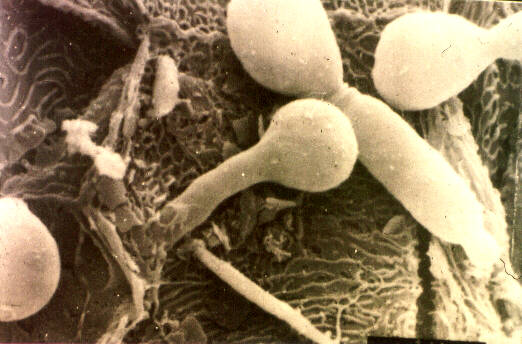Vitamins D3 and K2 and correlation with Coronary Artery Disease
Vitamin K2 and vitamin D are like superheroes for your heart because they can help protect it from a big problem called coronary artery calcification (CAC). Think of CAC as tiny pebbles that pile up in the tubes that carry blood to your heart. When there are too many pebbles, it’s bad news – it can lead to heart disease and even heart attacks. But vitamin K2 swoops in and saves the day by activating a special protein called matrix Gla protein. This protein helps keep the pebbles from building up too much, making your arteries less stiff and your heart healthier. Scientists found that people with low levels of vitamin D are more likely to have heart problems, strokes, or even die early. So, having enough vitamin D is important too.
But here’s the cool part: vitamin K2 doesn’t just help vitamin D do its job, it also has its own special power. It’s like a traffic director for calcium, a mineral that makes your bones strong. You see, calcium can be a bit clumsy – if it doesn’t have someone guiding it, it might end up in the wrong place, like your blood vessels instead of your bones. That’s where vitamin K2 comes in. It makes sure calcium goes where it’s supposed to – to your bones, making them strong and healthy.
Now, some really smart researchers looked into this and found something amazing. In a fancy medical journal called the Journal of the American College of Cardiology, they wrote about how taking vitamin K2 and vitamin D can help stop CAC from getting worse, especially in people who are at higher risk of heart problems. This means that by taking these vitamins, you might be giving your heart some extra protection against heart attacks and maybe even living longer and healthier. So, just like superheroes, vitamin K2 and vitamin D are here to save the day for your heart!
K2 and Vitamin D Slow Down the heart disease
Researchers found that vitamins K2 and D can help slow down a problem called coronary artery calcification (CAC), which is like a buildup of tiny pebbles in the tubes that carry blood to your heart. They discovered this by looking closely at a study called the Aortic Valve Decalcification Trial, or AVADEC for short. In this study, 389 patients who were around 71 years old were given either vitamins K2 and D or a fake pill (placebo) for 24 months.
At first, the study didn’t show much difference between the people taking the vitamins and those taking the placebo when it came to the buildup of pebbles in a valve in the heart called the aortic valve. But when researchers looked at a smaller group of people with a lot of pebbles already in their heart tubes (those with a high CAC score) and people who were taking a type of medicine called statins, they found something interesting.
In this smaller group, the people who took vitamins K2 and D had fewer bad things happen to their hearts, like heart attacks or surgeries, compared to those who took the fake pills. And for those who were already taking statins, the vitamins really made a difference – they helped slow down the buildup of pebbles in the heart tubes. So, it seems like vitamins K2 and D might be like a shield for your heart, especially if you already have a lot of pebbles in there or if you’re taking statins.
The study mentioned something important: so far, no research trials have been able to prove that they can slow down the buildup of pebbles in the heart tubes, called coronary artery calcification (CAC). They also found that the more pebbles someone already had in their heart tubes at the beginning of the study, the faster the pebbles grew over time.
But here’s where it gets interesting: in the study, they noticed that the people who were at high risk because they already had a lot of pebbles in their heart tubes seemed to benefit the most from taking vitamin K2. It’s like the vitamins were really helping those who needed it most. The researchers think that maybe the effect of the vitamins is most obvious in people who already have a lot of pebbles, and they also think that maybe the study wasn’t long enough to see a difference in people with fewer pebbles. So, it’s like they’re saying, “Hey, maybe the vitamins work best for those who really need them, but we need more time to be sure.
In the study https://www.ncbi.nlm.nih.gov/pmc/articles/PMC9237441 , they used a special type of vitamin K2 called menaquinone-7 (MK-7), which is found in foods that have been fermented, like certain cheeses and natto (a type of fermented soybean). Before this study, other research found that taking 180 micrograms (mcg) of this type of vitamin K2 every day for three years helped make the arteries less stiff in women who had gone through menopause, especially those whose arteries were already very stiff.
The main person in charge of the study, Axel Diederichsen from Odense University Hospital in Denmark, said they’re planning to do another study to see what happens when people with severe coronary artery calcification take vitamins K2 and D3. He explained that they’re curious to find out more, especially about how not having enough vitamin K2 might affect the buildup of pebbles in the heart tubes. They already know that having a lot of pebbles in the heart tubes can make someone more likely to have a heart attack or die, so they want to see if these vitamins can help.
Vitamin K2 is like a superhero for your heart
It’s really important for keeping it healthy. It works together with some special proteins in your body, like matrix Gla protein (MGP) and osteocalcin, which are like the helpers in this superhero team.
MGP does something amazing – it grabs onto calcium in the cells of your heart tubes and takes it away, like cleaning up calcium buildup on the walls of your blood vessels. Then, vitamin K2 steps in and helps move that calcium to where it’s needed – your bones! It hands the calcium over to osteocalcin, which helps keep your bones strong by sticking the calcium in place.
The glutamic acid in MGP is like the commander of this whole operation. It’s super important for keeping your blood vessels healthy by stopping too much calcium from building up. When calcium builds up in your blood vessels, it can make them hard and narrow, which can lead to serious problems like heart attacks or strokes. So, by making sure MGP is working well, vitamin K2 helps keep your heart and blood vessels in good shape.
MGP, a special protein in your body, needs to go through a process called carboxylation to become active and do its job properly. This process involves adding something called a carboxyl group, and that’s where vitamin K2 steps in to help. Vitamin K2 works together with an enzyme called gamma-glutamyl carboxylase to make sure MGP gets carboxylated. Once this happens, MGP becomes active and can start grabbing onto calcium ions.
Activated MGP acts like a protector for your blood vessels. It grabs onto calcium and stops it from building up where it shouldn’t, like in the plaques that can form in your arteries. Instead, it helps put the calcium back into circulation where it’s needed.
At the same time, vitamin K2 also helps with another important job: making your bones strong. It does this by activating another protein called osteocalcin, which helps stick calcium into your bones, making them denser and healthier. So, by working together, vitamin K2 helps keep your heart and blood vessels healthy by making sure calcium goes where it’s supposed to – out of your blood vessels and into your bones.
Glutamic acid in MGP, along with vitamin K2, plays a crucial role in keeping your blood vessels healthy. It stops calcium from building up in your arteries, preventing them from getting hard and narrow. At the same time, it helps make sure that calcium is used properly to make your bones strong. This shows how important it is to get enough vitamin K2 to keep both your heart and bones healthy.
Double Protection: Keeping Arteries Clear and Bones Strong
A two-pronged approach to keeping your blood vessels clear and your bones strong involves vitamin K2. This vitamin activates two important proteins, enabling the transfer of calcium from your arteries to your bones. Without enough vitamin K2, this process can’t happen, which increases the risk of calcium buildup in your arteries.
Research has shown that people with higher levels of vitamin K2 are significantly less likely to develop severe calcium buildup in their arteries or die from heart disease over several years. For example, in one study, those with the highest intake of vitamin K2 had a 52% lower risk of arterial calcification and a 57% lower risk of heart disease-related deaths over a seven- to 10-year period.
In another study, called the Prospect Study, following 16,000 people for 10 years revealed that each additional 10 mcg of vitamin K2 in the diet led to a 9% decrease in cardiac events. Similarly, research from Edith Cowan University found that individuals with a diet rich in vitamin K had a 34% reduced risk of peripheral artery disease (PAD) or PAD-related hospitalization.
Moreover, when looking specifically at vitamin K2, those with the highest dietary intake were found to have a 14% lower risk of hospitalization for illnesses related to atherosclerotic cardiovascular disease (ASCVD) compared to those with the lowest intake. A review of clinical studies in 2023 further emphasized the importance of consuming vitamin K-rich foods or supplements for maintaining vascular health.
When researchers looked specifically at the data for vitamin K2, they discovered that individuals with the highest dietary intake of vitamin K2 had a 14% lower risk of being hospitalized for illnesses related to atherosclerotic cardiovascular disease (ASCVD) compared to those with the lowest intake.
A review of clinical studies in 2023 emphasized the importance of vitamin K in cardiovascular health. It highlighted that consuming foods rich in vitamin K or taking vitamin K supplements can help maintain vascular health. The review noted that vitamin K plays a crucial role in preventing vascular calcification by regulating the carboxylation of specific proteins that depend on vitamin K. These proteins, including MGP and osteocalcin, are essential for proper calcium metabolism in the body, benefiting both vascular health and bone strength.
MGP, in particular, is a powerful inhibitor of vascular calcification produced by various cells in the body. When MGP is carboxylated, it binds strongly to calcium ions, preventing them from being deposited in places like the walls of arteries, where they don’t belong. This helps keep blood vessels healthy and prevents the buildup of harmful calcium deposits.
The Impact of Vitamin D on Heart Health
Vitamin D, known as a steroid hormone, plays a significant role in heart health. It helps to reduce oxidative stress in your blood vessels, which is important for preventing heart disease. Additionally, a study conducted in Norway and published in the Journal of Clinical Endocrinology and Metabolism showed that maintaining a regular intake of vitamin D can notably decrease the risk of death in individuals with cardiovascular disease.
A study https://academic.oup.com/jcem/article/103/3/1161/4794886 followed about 4,000 patients diagnosed with stable angina pectoris, a type of chest pain caused by coronary heart disease, for 12 years. They found that those with vitamin D blood levels ranging from 16.8 to 40 ng/mL (42 to 100 nmol/L) had the lowest risk of mortality.
The researchers explained that vitamin D may benefit the heart by influencing various processes such as endothelial function, fibrosis, and inflammation, all of which are relevant to the progression of narrowing of blood vessels and the stability of fatty plaques. Additionally, vitamin D helps regulate many genes, with its main role being to maintain proper levels of calcium in the body.
Recent studies have shown that genetically higher levels of calcium in the blood can increase the risk of coronary artery disease (CAD) and heart attacks. Vitamin D may play a role in modifying this risk by allowing for safer intake of dietary calcium, thus reducing the likelihood of heart problems.
Other studies have also emphasized the significance of vitamin D in both preventing and treating heart disease, highlighting its crucial role in safeguarding and repairing damage to the endothelium, the inner lining of blood vessels. Vitamin D3 specifically aids in the production of nitric oxide, a molecule essential for controlling blood flow and preventing the formation of blood clots in the vessels.
The most effective way to ensure you have enough vitamin D is by getting sensible exposure to sunlight. However, this can be challenging, especially during winter or if you live in northern areas where sunlight is scarce. In such cases, taking a vitamin D supplement is recommended to maintain optimal levels.
It’s essential to measure your vitamin D level regularly, ideally twice a year, to determine the right amount of sun exposure or vitamin D3 supplementation needed. According to data from GrassrootsHealth’s D*Action studies, maintaining a vitamin D level between 60 ng/mL and 80 ng/mL is optimal for overall health and disease prevention. However, for specific conditions like cancer and autoimmune diseases, higher levels may be recommended.
The cutoff point for sufficiency is typically around 40 ng/mL, equivalent to 100 nmol/L in Europe. To ensure adequate levels, aim for measurements between 150 to 200 nmol/L in Europe. Regular monitoring of your vitamin D levels can help tailor sun exposure and supplementation strategies to meet your individual needs and maintain optimal health.
Collaboration of Vitamins K and D Alongside Magnesium and Calcium
Achieving the right balance of magnesium, calcium, vitamin D3, and vitamin K2 is crucial for optimal heart and overall health. The safest approach is to include more foods rich in calcium, magnesium, and vitamin K2 in your diet, along with sensible sun exposure.
An imbalance, such as excessive vitamin D without enough vitamin K2, can lead to overabsorption of calcium, potentially causing calcium deposits in the heart and kidneys. Additionally, low magnesium levels can contribute to vascular calcification. Therefore, when supplementing with vitamin D3, it’s important to ensure adequate intake of both vitamin K2 and magnesium to maintain proper function.
Magnesium and vitamin K2 work together synergistically. Magnesium helps regulate blood pressure, an important factor in heart health, and also supports the metabolism and synthesis of vitamin D. Studies have shown that magnesium and vitamin K2 enhance the absorption of vitamin D and reduce the risk of calcium deposition in the coronary arteries.
Are You Getting Sufficient Vitamin K2?
Determining if you’re getting enough vitamin K2 can be challenging because there’s currently no direct test available for measuring it. Instead, vitamin K2 levels are indirectly assessed through a test that measures undercarboxylated osteocalcin, but this test is not yet widely available.
As a general guideline, if you have conditions like osteoporosis, heart disease, or diabetes, you may be deficient in vitamin K2. It’s believed that many people are deficient and could benefit from increasing their intake of vitamin K2-rich foods. These include certain fermented foods like natto, certain cheeses like Brie and Gouda, and grass-fed organic animal products such as egg yolks and liver.
If you’re taking statin drugs, which can deplete vitamin K2, you might also be deficient. For supplementation, a daily intake of around 150 mcg of vitamin K2 is recommended, although some suggest slightly higher doses, up to 180 to 200 mcg. Vitamin K2 is generally considered safe, so there’s no risk of overdosing. However, if you’re taking vitamin K antagonists, which reduce blood clotting, you should avoid MK-7 supplements.



